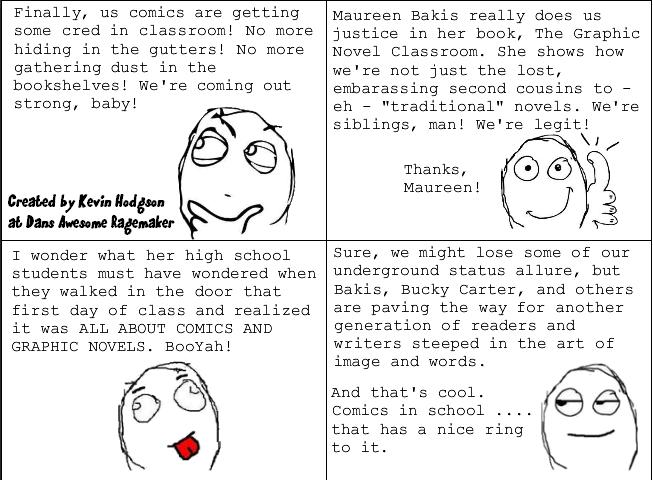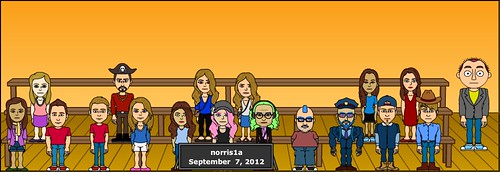One of my goals this year for myself in the classroom is trying to spark more engaging discussions with my students around broader, larger issues that don’t have easy answers. I’ve always done this (as you have) but I am trying to think about it in a more systematic, organized way to get my sixth graders thinking and considering many sides of issues. Part of this is just because those are the critical thinking skills I want to see in my students, and part of it is because our new Massachusetts Curriculum Standards (ie, Common Core) demand that this kind of “speaking and listening” goes on in the classrooms.
My students read the novel, The Mostly True Adventures of Homer P. Figg, over the summer, and the main character is a habitual liar. We had a long discussion about that word “mostly” in the title, and the role of the “unreliable narrator” in a story. We also began to analyze why Homer does lie — and whether the lying is good or bad. On our first day of discussions, a number of students said what they didn’t like about the book was that Homer lies a lot. But as we parsed it out, I think it became more clear that Homer lies to protect himself (sometimes) as well as lies because … well, he can’t help it.
This shifted our discussion to why people do lie, and every hand in the room shot up (including mine) when I asked, Have you ever lied about anything? And that led to a wide-ranging discussion about when it is OK to lie (to protect someone’s feelings, to protect yourself) to white lies (such as when someone in the room tells you to lie to someone on the telephone) to whether governments ever lie to their people (yes, my students argued, although the reasons might be different, from protecting the populace to covering up something.)
What we did then was move to using video as our text. I brought us into the site ‘What’s the Big Idea?” — which is a site built around teaching middle school and high school students concepts of philosophy by using clips from Hollywood movies. (Note: a friend of mine worked with an area college professor to build up the site. She’s a filmmaker.) I love how the clips introduce the larger concept, and then shifts into short clips from movies, and then asks probing questions. We used the lying section, but there are others (friendship, peer pressure, bullying) and still more under development.
We first watched a scene from the Jim Carrey movie, Liar, Liar, and then the two scenes from Jaws. Both echoed back to our earlier conversation, and yet, the clips gave us something else to talk around, as we were able to think about the ramifications of lying — in the first, the character has to tell the truth and hurts everyone’s feelings, and in the second, the government’s decision to lie to the public leads to another shark attack.
A few of the novels and books we read this year will have this underlying theme of lying, and so I see this as an opening discussion that we will revisit throughout the year. The movie clips from the website provided us with a helpful visual context from which my students moved back and forth from the novel, to their own lives, to the movies. This gave them various entry points to engage in the classroom conversation that really had no clear-cut answer to the question, Is it OK to lie?
Peace (in the talk),
Kevin





